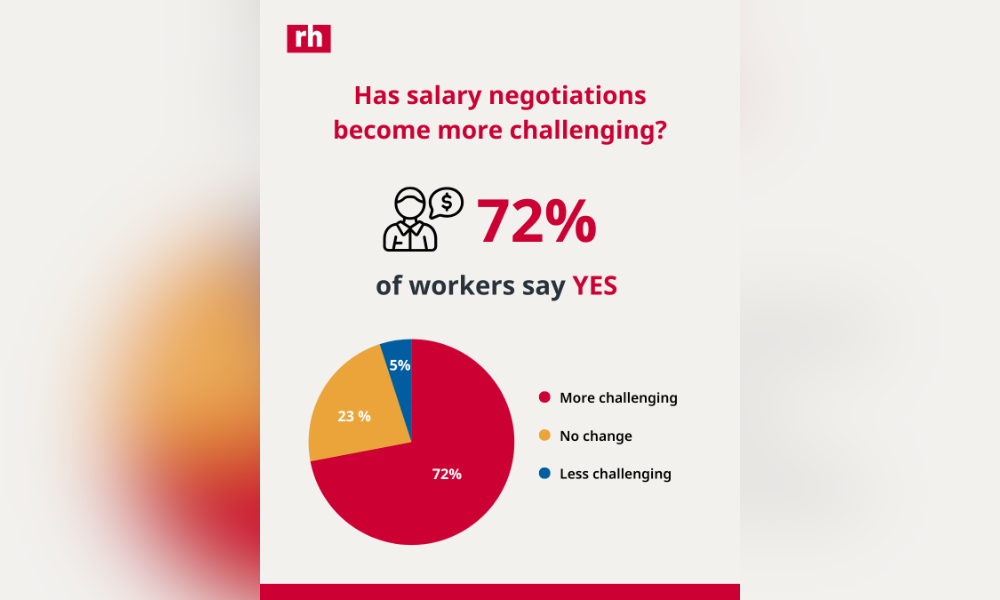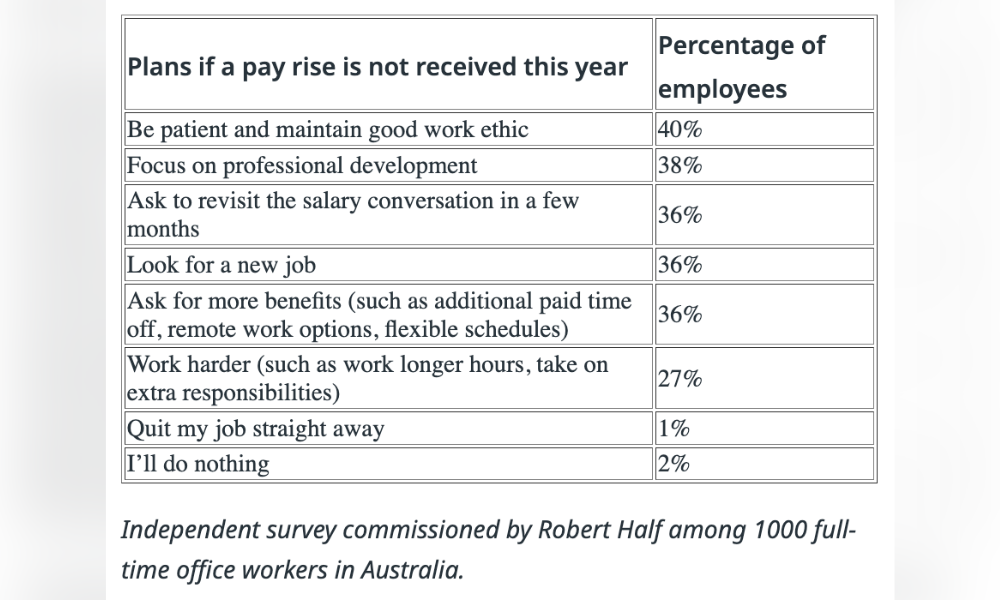
Employers think employees are more demanding when it comes to pay

Australia is currently experiencing a "salary dilemma" across organisations as employers and employees point out a more challenging negotiation process when it comes to salary hikes, according to a new report from Robert Half.
Its findings revealed that 72% of employees believe negotiating for a pay rise is more challenging than last year, with 90% stating that this will not deter them from making the request.

On the other hand, 49% of employers say that candidates are now more demanding when it comes to salary compared to the previous year.
"Our 2025 Salary Guide paints a picture of the complex salary dynamics that will shape the job market this year," said Nicole Gorton, director at Robert Half, in a statement.
"The current work environment faces a salary dilemma. Employers continue to face budget constraints and focus on cost management while the demand for higher pay has become louder from employees who haven’t had a significant pay rise during a turbulent few years despite their hard work and their need to feel financially stable."
From employees' perspective, 36% of them said they believe they deserve a pay rise because they consistently exceed performance goals.
Another 32% said a pay rise is warranted because their salary needs to keep pace with the cost of living, and that they have taken on new projects or a larger workload. Others said:
They have acquired new skills or qualifications that are valuable to their role (29%)
They are seeking a promotion to a higher-paying position (27%)
They have not received a salary increase in a long time (15%)
They are not being compensated fairly for my work (9%)
They expect a raise every year (9%)
"Employees are becoming more vocal about their contributions and compensation expectations the more inflation affects their hip pocket," Gorton said. "Failing to recognise and reward top performers is a costly oversight."
Employers have agreed that merit warrants a pay rise, with 30% of them saying that meeting and exceeding performance goals is a reason to increase salaries.
But more than a quarter of employers (26%) also said that all employees will be evaluated on similar criteria to determine if a raise is applicable. Other reasons cited to increase salaries include:
To stay competitive, if current salary is not aligned with market or skills in demand (19%)
Retention, as keeping people is valued over replacing them (18%)
Employee tenure (6%)
With salary negotiations becoming more challenging, the report found that 36% of employees said they will look for a new job if they didn't get a pay rise this year.
Another 36% also said they will ask to revisit the salary conversation in a few months, while others said they will ask for more benefits, such as additional paid time off, remote work options, and flexible schedules.

Gorton underscored that open communication, robust benefits packages, and professional development opportunities can help maintain morale and loyalty if salary increases aren't always feasible for organisations.
"After all, competitive compensation and comprehensive rewards are essential for attracting and retaining top talent as well as remaining an employer of choice," Gorton said.